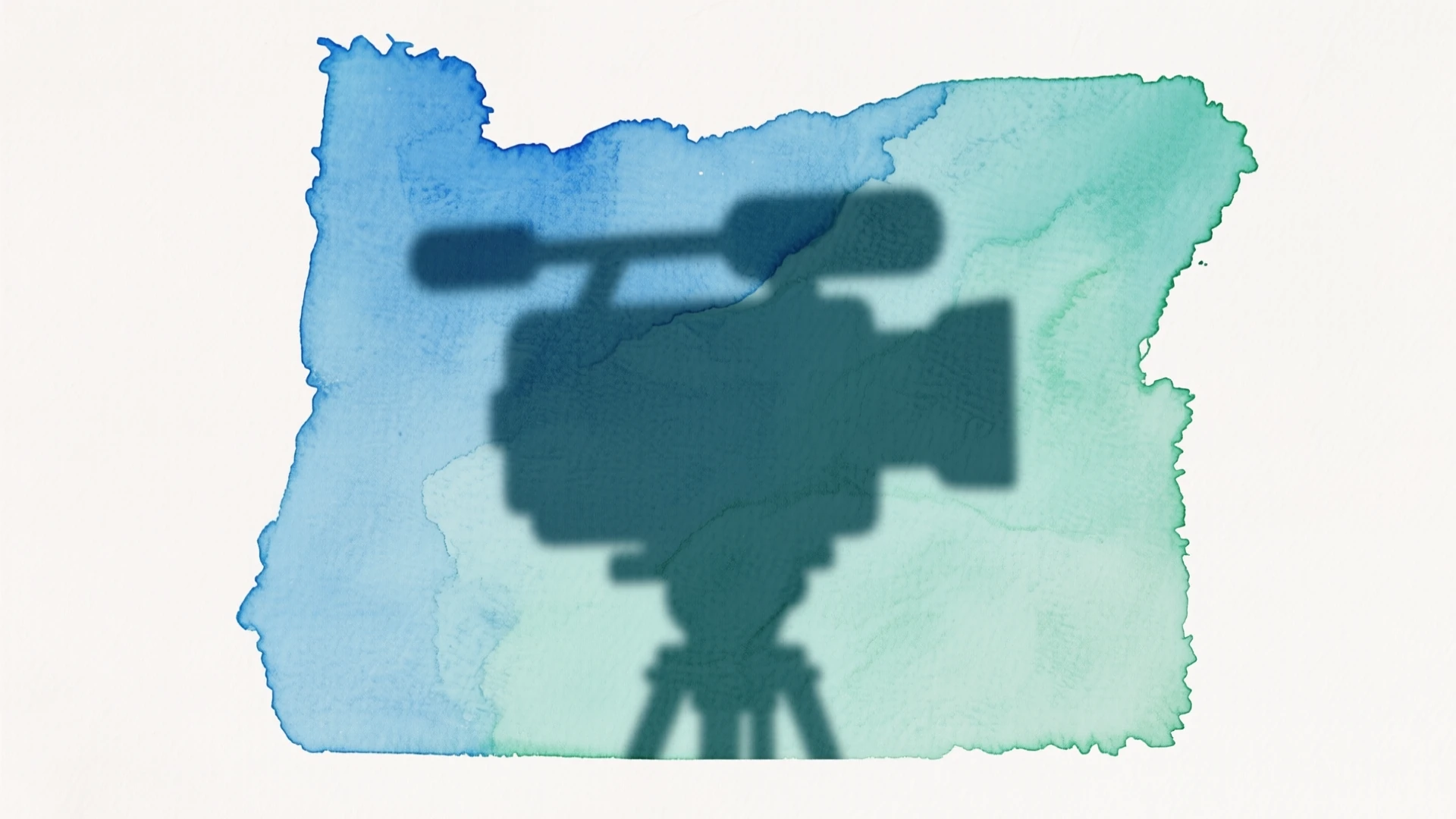Oregon Recording Laws: A Practical Guide to Audio and Video Evidence

Oregon Recording Laws: A Practical Guide to Audio and Video Evidence
TL;DR
- Video recording: Generally legal in public spaces with no consent requirement
- Audio recording: Oregon requires notice for in-person conversations (as of January 2025); phone calls remain one-party consent
- Dash cams: Video is fine; disable audio recording unless you post clear notice signs
- Key statute: ORS 165.540 governs conversational privacy in Oregon
- Practical impact: Most recording situations are legal if you understand the audio vs. video distinction
Understanding Oregon’s Recording Laws: The Basics
Oregon’s recording laws distinguish clearly between audio and video recording, with different rules for each. This distinction matters for everything from dash cams to smartphone recordings to security cameras.
The January 2025 Legal Clarification
In January 2025, the Ninth Circuit Court of Appeals issued an en banc decision that clarified Oregon’s conversational privacy statute (ORS 165.540). The court upheld that Oregon requires notice before recording in-person audio conversations, but this requirement does not extend to video-only recording.
This decision resolved years of uncertainty about how Oregon’s privacy laws apply to modern recording technology.
Video Recording: Generally Permissible
Public Spaces
Recording video in public spaces is generally legal under Oregon law. This includes:
- Street scenes and public events
- Traffic situations (crucial for dash cams)
- Public portions of businesses
- Government buildings and proceedings
Private Property
Video recording on private property requires permission from the property owner or person in control of the space.
No Expectation of Privacy
The key legal test is whether someone has a “reasonable expectation of privacy.” In most public settings, courts have found no such expectation exists for visual recording.
Audio Recording: More Complex Rules
In-Person Conversations: Notice Required
Current Law (as of January 2025): Oregon requires notice before recording in-person audio conversations. This means:
- You must inform people that the conversation is being recorded
- The notice must be given before recording begins
- Written signs can satisfy the notice requirement
- The notice doesn’t have to be verbal—it just has to be clear
Phone Conversations: One-Party Consent
Oregon follows one-party consent for telephone conversations, meaning:
- You can record phone calls you’re part of without telling the other person
- You cannot record phone calls between other people unless you have consent
- This applies to landlines, cell phones, and VoIP calls
The “Conversational Privacy” Standard
ORS 165.540 protects “conversational privacy” but the 2025 court decision clarified this applies specifically to audio content of conversations, not visual recording of people talking.
Practical Applications for Common Situations
Dash Cameras
Video: Completely legal for recording traffic and road conditions Audio: Disable cabin audio recording OR post clear notice signs in your vehicle
Best Practice: Most dash cam users should disable audio recording to avoid any compliance issues.
Smartphone Recording
Public incidents: Video recording is generally fine; be cautious about audio if you’re close enough to capture clear conversations
Private conversations: Always get permission before recording audio of conversations you’re not part of
Security Cameras
Video surveillance: Legal for your own property; avoid pointing cameras at neighbors’ private areas Audio recording: Requires notice if the cameras capture audio in areas where people might expect conversational privacy
Workplace Recording
General rule: Check company policies first Legal requirement: Notice required for audio recording of workplace conversations Union considerations: Collective bargaining agreements may have additional restrictions
Evidence and Legal Proceedings
Admissibility Standards
Oregon courts generally admit lawfully obtained recordings as evidence if:
- The recording is relevant to the case
- Proper authentication is provided
- The recording wasn’t obtained in violation of privacy laws
Authentication Requirements
To use recordings as evidence, you typically need:
- Testimony about how the recording was made
- Evidence that the recording is accurate and unedited
- Chain of custody documentation
- Proof the recording complies with applicable laws
Common Evidentiary Issues
Edited recordings: Courts scrutinize any evidence of editing or manipulation Poor quality: Audio or video quality issues can affect admissibility Privacy violations: Illegally obtained recordings are typically excluded
Exceptions and Special Circumstances
Law Enforcement
Police officers operate under different rules and generally can record in the course of their official duties.
Emergency Situations
Courts may consider emergency circumstances when evaluating the legality of recordings made without proper notice.
Commercial vs. Personal Use
Different standards may apply depending on whether recording is for personal use, journalism, or commercial purposes.
Penalties for Violations
Criminal Penalties
Violating ORS 165.540 can result in:
- Class A misdemeanor charges
- Up to one year in jail
- Fines up to $6,250
Civil Remedies
People whose privacy is violated may have grounds for:
- Civil lawsuits for damages
- Injunctive relief to stop ongoing violations
- Attorney’s fees in some cases
Compliance Best Practices
For Dash Cam Users
- Disable audio recording unless you post clear notice signs
- Keep video-only settings for hassle-free compliance
- Document your settings in case questions arise later
- Check settings after updates to ensure audio remains disabled
For General Recording
- When in doubt, ask permission before recording audio
- Post clear signs if you’re recording audio in spaces you control
- Understand the difference between video and audio rules
- Keep current on legal developments—recording law evolves with technology
For Business Owners
- Post clear notices about any audio recording systems
- Train employees on recording policies
- Review security systems to ensure compliance
- Document compliance efforts for liability protection
Recent Legal Developments
The 2025 Ninth Circuit Decision
The January 2025 en banc decision by the Ninth Circuit Court of Appeals provided crucial clarity by:
- Upholding Oregon’s notice requirement for in-person audio recording
- Clarifying that video-only recording isn’t covered by the conversational privacy statute
- Resolving circuit splits on similar privacy laws
- Providing guidance for lower courts on interpretation
Technology and Legal Evolution
Recording law continues to evolve as technology advances:
- Smart devices with always-on listening capabilities raise new questions
- Artificial intelligence and voice recognition create new privacy concerns
- Cloud storage of recordings may trigger additional federal laws
- Interstate recording situations can involve multiple jurisdictions’ laws
Frequently Asked Questions
Can I record a conversation I’m part of?
Phone conversation: Yes, Oregon is a one-party consent state for phone calls In-person conversation: You must provide notice to other parties before recording audio
What if someone is recording me without permission?
If someone records your in-person conversation without notice in Oregon, they may be violating ORS 165.540. You can:
- Ask them to stop recording
- Report potential violations to law enforcement
- Consult with an attorney about civil remedies
Do Ring doorbells and security cameras need special notices?
If your security cameras record audio in areas where people might expect conversational privacy, posting clear notice signs is advisable. Video-only recording is generally permissible.
What about recording police interactions?
You generally have the right to record police officers performing their duties in public spaces. However, you cannot interfere with their work, and audio recording rules still apply.
When to Seek Legal Advice
Consider consulting with an attorney if you:
- Need to use recordings as evidence in legal proceedings
- Face accusations of illegal recording
- Run a business with recording systems
- Have questions about specific recording situations
- Need to understand federal laws that might also apply
Recording laws can be complex, especially when federal regulations or multiple jurisdictions are involved.
Key Takeaways for Oregonians
Remember the distinction: Video and audio recording have different rules in Oregon Notice matters: When recording audio of in-person conversations, provide clear notice Dash cams: Stick to video-only settings for simplest compliance Stay informed: Recording law evolves with technology—what’s legal can change When in doubt: Ask permission or seek legal guidance
Understanding these laws helps you make informed decisions about recording while respecting others’ privacy rights and staying on the right side of Oregon law.
This information is for educational purposes only and should not be considered legal advice. Recording laws can be complex and may involve federal regulations beyond Oregon state law. For specific legal situations, consult with a qualified attorney.



